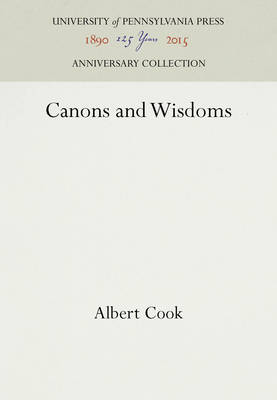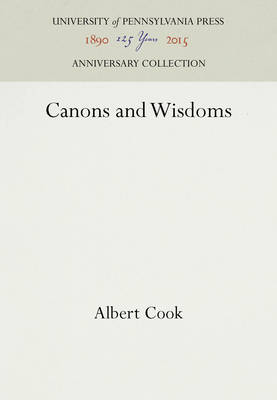
- Retrait gratuit dans votre magasin Club
- 7.000.000 titres dans notre catalogue
- Payer en toute sécurité
- Toujours un magasin près de chez vous
- Retrait gratuit dans votre magasin Club
- 7.000.000 titres dans notre catalogue
- Payer en toute sécurité
- Toujours un magasin près de chez vous
Description
In Canons and Wisdoms, Albert Cook addresses what is arguable the most profound question about poetry and literature: What is its human value? Cook claims that the value lies in the special yield of wisdom rich, full, and not available in other forms of human discourse. This somewhat traditional position is reinforced by the related arguments of such philosophers as Adorno and Heidegger, and by other works in Renaissance poetry and modern poetry and fiction, where the sense of the work becomes clearer when it is seen in the light of such a question.
Cook addresses what can be claimed for poetry and literature after all due allowance has been made for the relativity of canons, the subjectivity of the literary experience, and the subtle and comprehensive effects of received expectations. Such questions have dominated recent discussions about the value of literature. The nature of all human utterance argues for its being aimed at social inclusion, formalized as a canon, even though such a notion must remain ideal. Canons and Wisdoms is an eloquent and original contribution to the ongoing debate about the canon. It is the work of an experienced, erudite, and individualistic scholar working at the intersection of philosophy and literary theory and criticism.Spécifications
Parties prenantes
- Auteur(s) :
- Editeur:
Contenu
- Nombre de pages :
- 200
- Langue:
- Anglais
- Collection :
Caractéristiques
- EAN:
- 9780812232042
- Date de parution :
- 29-08-93
- Format:
- Livre relié
- Format numérique:
- Genaaid
- Dimensions :
- 156 mm x 234 mm
- Poids :
- 503 g







